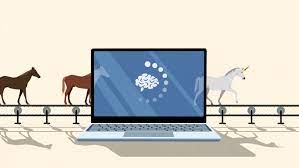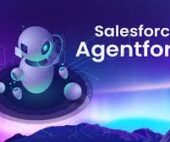Earlier this month, CRM specialists Salesforce hosted the latest edition of its World Tour Essentials event in Johannesburg. This event provided Salesforce with an opportunity to engage more personally with businesses in the region and showcase the AI-powered solutions it is developing, including the Einstein 1 platform. Now Salesforce Customers Take On AI Hallucinations.
Einstein 1 is designed for AI-focused enterprises, leveraging existing CRM applications from Salesforce, along with data cloud and AI-powered tools. This platform aims to address key business challenges, one of which is the issue of generative AI hallucinations—where AI generates false information due to data gaps.
A notable example of this issue was seen with Google’s Gemini, which produced bizarre and potentially harmful suggestions, like advising users to put epoxy glue on pizza. This occurred because the AI lacked sufficient data to generate accurate responses. While some companies continue to use the internet to train their platforms to avoid such hallucinations, businesses, particularly in the CRM field, cannot afford these inaccuracies.
Salesforce has introduced a tool called Einstein 1 Studio to combat this problem. This tool allows business engineers and developers to create prompts and refine the overall experience of conversational platforms like Slack AI. During a media roundtable at the World Tour Essentials Johannesburg event, Linda Saunders, Salesforce’s Director of Solutions Engineering Africa, explained how Einstein 1 Studio helps mitigate AI hallucinations.
“If you ask Einstein an ungrounded prompt like, ‘Please summarize the case for me,’ it may not know which case you’re referring to. By pulling metadata elements into the prompt and using certain word triggers, we can provide a much richer and more accurate AI response,” Saunders highlighted.
She added that once a setup is built, it can be activated across multiple use cases, creating a consistent and efficient deployment process. Saunders also emphasized the importance of the trust layer within Einstein 1, which includes data grounding, audit trails, data masking, and mechanisms to prevent hallucinations.
“The trust layer is integral to Einstein 1. Whether you build it or use the out-of-the-box capabilities, the trust layer ensures grounded data, audit trails, and other critical features,” Saunders explained.
She also pointed out that Einstein 1’s building tools can address localization and tailor experiences to specific markets, like South Africa. “South African customers have unique needs compared to those in the US. This tool allows for prompt customization to better suit local business requirements,” Saunders noted.
The configuration engine on top of Copilot functionality allows businesses to refine prompt engineering, ensuring that AI interactions are more tailored and effective.
As AI integration becomes more widespread in business operations, addressing issues like AI hallucinations is crucial. According to Salesforce, Einstein 1 is designed with these considerations in mind, ensuring a reliable and accurate AI experience.













